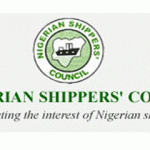Port users have threatened litigation against shipping companies and terminal operators over what thery termed illegal charges on transfer of cargoes to bonded terminals.
They are calling on port authorities to invoke regulatory powers to stop service providers from the arbitrary levies.
According to international standard and recognised practice, freight paid at port of origin covers movement of cargo to final port of destination.
It follows therefore, that cargoes earmarked for transfer to off-dock terminals, at the request of the shipping company, seaport terminal operator or off-dock terminal, without the consent of the consignees or their authorised representatives, should not attract charges against the consignees.
But that appears not to be the case in Nigeria’s ports. Consignees complain they are compelled to pay for the transfer of cargoes to off dock terminals without their consent.
The reasons shipping and terminal operators adduced for this is that the ports are congested, but port users argue that the major factor is the income they accrue from the illegal transfer of cargoes.
Port users have consistently had running battles with shipping and terminal operators over increasing charges and its impact on ease of doing business in Nigeria’s ports.
Port users have threatened litigation against shipping companies and terminal operators over what thery termed illegal charges on transfer of cargoes to bonded terminals.
They are calling on port authorities to invoke regulatory powers to stop service providers from the arbitrary levies.
According to international standard and recognised practice, freight paid at port of origin covers movement of cargo to final port of destination.
It follows therefore, that cargoes earmarked for transfer to off-dock terminals, at the request of the shipping company, seaport terminal operator or off-dock terminal, without the consent of the consignees or their authorised representatives, should not attract charges against the consignees.
But that appears not to be the case in Nigeria’s ports. Consignees complain they are compelled to pay for the transfer of cargoes to off dock terminals without their consent.
The reasons shipping and terminal operators adduced for this is that the ports are congested, but port users argue that the major factor is the income they accrue from the illegal transfer of cargoes.
Port users have consistently had running battles with shipping and terminal operators over increasing charges and its impact on ease of doing business in Nigeria’s ports.
Port users have threatened litigation against shipping companies and terminal operators over what thery termed illegal charges on transfer of cargoes to bonded terminals.
They are calling on port authorities to invoke regulatory powers to stop service providers from the arbitrary levies.
According to international standard and recognised practice, freight paid at port of origin covers movement of cargo to final port of destination.
It follows therefore, that cargoes earmarked for transfer to off-dock terminals, at the request of the shipping company, seaport terminal operator or off-dock terminal, without the consent of the consignees or their authorised representatives, should not attract charges against the consignees.
But that appears not to be the case in Nigeria’s ports. Consignees complain they are compelled to pay for the transfer of cargoes to off dock terminals without their consent.
The reasons shipping and terminal operators adduced for this is that the ports are congested, but port users argue that the major factor is the income they accrue from the illegal transfer of cargoes.
Port users have consistently had running battles with shipping and terminal operators over increasing charges and its impact on ease of doing business in Nigeria’s ports.
Port users have threatened litigation against shipping companies and terminal operators over what thery termed illegal charges on transfer of cargoes to bonded terminals.
They are calling on port authorities to invoke regulatory powers to stop service providers from the arbitrary levies.
According to international standard and recognised practice, freight paid at port of origin covers movement of cargo to final port of destination.
It follows therefore, that cargoes earmarked for transfer to off-dock terminals, at the request of the shipping company, seaport terminal operator or off-dock terminal, without the consent of the consignees or their authorised representatives, should not attract charges against the consignees.
But that appears not to be the case in Nigeria’s ports. Consignees complain they are compelled to pay for the transfer of cargoes to off dock terminals without their consent.
The reasons shipping and terminal operators adduced for this is that the ports are congested, but port users argue that the major factor is the income they accrue from the illegal transfer of cargoes.
Port users have consistently had running battles with shipping and terminal operators over increasing charges and its impact on ease of doing business in Nigeria’s ports.
Port users have threatened litigation against shipping companies and terminal operators over what thery termed illegal charges on transfer of cargoes to bonded terminals.
They are calling on port authorities to invoke regulatory powers to stop service providers from the arbitrary levies.
According to international standard and recognised practice, freight paid at port of origin covers movement of cargo to final port of destination.
It follows therefore, that cargoes earmarked for transfer to off-dock terminals, at the request of the shipping company, seaport terminal operator or off-dock terminal, without the consent of the consignees or their authorised representatives, should not attract charges against the consignees.
But that appears not to be the case in Nigeria’s ports. Consignees complain they are compelled to pay for the transfer of cargoes to off dock terminals without their consent.
The reasons shipping and terminal operators adduced for this is that the ports are congested, but port users argue that the major factor is the income they accrue from the illegal transfer of cargoes.
Port users have consistently had running battles with shipping and terminal operators over increasing charges and its impact on ease of doing business in Nigeria’s ports.
Port users have threatened litigation against shipping companies and terminal operators over what thery termed illegal charges on transfer of cargoes to bonded terminals.
They are calling on port authorities to invoke regulatory powers to stop service providers from the arbitrary levies.
According to international standard and recognised practice, freight paid at port of origin covers movement of cargo to final port of destination.
It follows therefore, that cargoes earmarked for transfer to off-dock terminals, at the request of the shipping company, seaport terminal operator or off-dock terminal, without the consent of the consignees or their authorised representatives, should not attract charges against the consignees.
But that appears not to be the case in Nigeria’s ports. Consignees complain they are compelled to pay for the transfer of cargoes to off dock terminals without their consent.
The reasons shipping and terminal operators adduced for this is that the ports are congested, but port users argue that the major factor is the income they accrue from the illegal transfer of cargoes.
Port users have consistently had running battles with shipping and terminal operators over increasing charges and its impact on ease of doing business in Nigeria’s ports.
Port users have threatened litigation against shipping companies and terminal operators over what thery termed illegal charges on transfer of cargoes to bonded terminals.
They are calling on port authorities to invoke regulatory powers to stop service providers from the arbitrary levies.
According to international standard and recognised practice, freight paid at port of origin covers movement of cargo to final port of destination.
It follows therefore, that cargoes earmarked for transfer to off-dock terminals, at the request of the shipping company, seaport terminal operator or off-dock terminal, without the consent of the consignees or their authorised representatives, should not attract charges against the consignees.
But that appears not to be the case in Nigeria’s ports. Consignees complain they are compelled to pay for the transfer of cargoes to off dock terminals without their consent.
The reasons shipping and terminal operators adduced for this is that the ports are congested, but port users argue that the major factor is the income they accrue from the illegal transfer of cargoes.
Port users have consistently had running battles with shipping and terminal operators over increasing charges and its impact on ease of doing business in Nigeria’s ports.
Port users have threatened litigation against shipping companies and terminal operators over what thery termed illegal charges on transfer of cargoes to bonded terminals.
They are calling on port authorities to invoke regulatory powers to stop service providers from the arbitrary levies.
According to international standard and recognised practice, freight paid at port of origin covers movement of cargo to final port of destination.
It follows therefore, that cargoes earmarked for transfer to off-dock terminals, at the request of the shipping company, seaport terminal operator or off-dock terminal, without the consent of the consignees or their authorised representatives, should not attract charges against the consignees.
But that appears not to be the case in Nigeria’s ports. Consignees complain they are compelled to pay for the transfer of cargoes to off dock terminals without their consent.
The reasons shipping and terminal operators adduced for this is that the ports are congested, but port users argue that the major factor is the income they accrue from the illegal transfer of cargoes.
Port users have consistently had running battles with shipping and terminal operators over increasing charges and its impact on ease of doing business in Nigeria’s ports.














